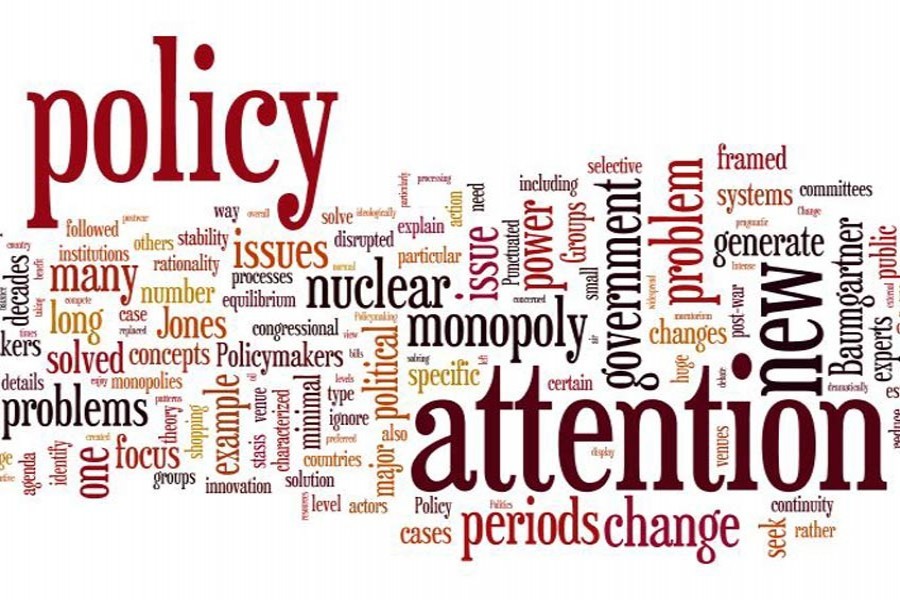
Published :
Updated :

One wonders if a police officer could better handle a situation. What a doctor should do to precisely diagnose disease. When a tax official or a banker needs to be lenient towards defaulters. Which issues development planners and entrepreneurs must focus on for growth. Why a writer deserves grilling from readers. If some social groups are not entitled to some rights or any individual or the entire setup is to blame for policy failure. It's easier to suggest solutions when one doesn't belong to any of the professional groups.
We're quite generous in offering solutions free of cost, going much beyond our areas of work, whereas most of our establishments deny the very existence of a problem.
Despite the culture, our students and new professionals are asked to make solutions, which, as practice suggests, are aimed at securing marks from teachers and marketing a product or service. In fact, they are assigned to show 'creativity' through old-fashioned manner of solving problems and when they are yet to understand the 'solution to what?' phenomenon or problem.
Defining a problem, honestly, is tantamount to half the solution to it, according to an old adage, which is not conveyed accurately to 'whom it may concern'. The system, too, is barely receptive of the issues that disturb a feel-good mood of any authorities.
It is others who are still aware of the problems such as 'who suffers most during the pandemic', 'which features are missing from life', and 'what kind of uncertainty people are apprehensive of in the coming days'.
People may say it's a natural tendency to evade problems although they are piled up over time.
A student is not generally encouraged to critically analyse the key problems facing the nation, lest such pursuit hampers his/her outlook of seeing everything optimistically. They, however, know the problems superficially, and most cannot explore solutions. Lacking in research orientation, each of them is not in a position to go for bold and out-of-the-box remedies aimed at bringing changes.
Causes and effects of food adulteration, crisis in public healthcare, shortage of jobs and livelihoods opportunities, shortcomings in service delivery and governance deficiency - are all known to people concerned but they remain unresolved over the decades.
When we express determination to make progress in every sector, we need to tell ourselves how that can be attained. One buzzword is productivity increase that can at least bring quantitative development. What then comes into question is the skills of the human resources which are the outcome of better quality education, updated training, useful regulation and culture of appreciating efficiency.
In Bangladesh, we talk about farmland depletion, water and air pollution, encroachment into rivers and marshland, intervention into forest, unplanned urbanisation, lack of ethics in socio-political activities, generation gap and all that which can spoil our future unless they are addressed. But do we seriously consider them problems that require solutions urgently?
Of course, we seek solutions, somewhat wistfully, but the problem that arises next is that they require collective endeavours and paying certain price. If you are unwilling to do your task at hand voluntarily and with enthusiasm, you are most likely to face problems after problems, and that too are poorly perceived ones.
It takes courage, more so in the Bangladesh context, to publicly accept criticism for mistakes. Ones who can do so are not far away from resolving critical issues. But the paradox is: Not all can present the best solution to society of his/her generation.
Solutions cannot be imposed from outside, either, unless people feel their necessity and dedicate energies to bring about the changes required. It's the Bangladeshis who used micro-credit as a means to breaking shackles of poverty, went abroad with jobs to improve lives of millions, set up garment factories to add value to business, and are emerging as freelancers to earn independently.
Now, in spite of declared policy on developing entrepreneurship, those who try to take initiatives encounter a variety of problems that are enough to hinder their growth. Even problems are often shelved amid debates between those who complain and those who deny.


 For all latest news, follow The Financial Express Google News channel.
For all latest news, follow The Financial Express Google News channel.